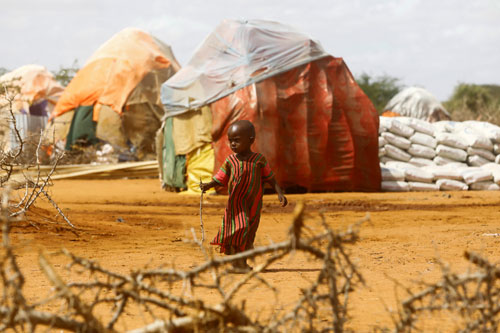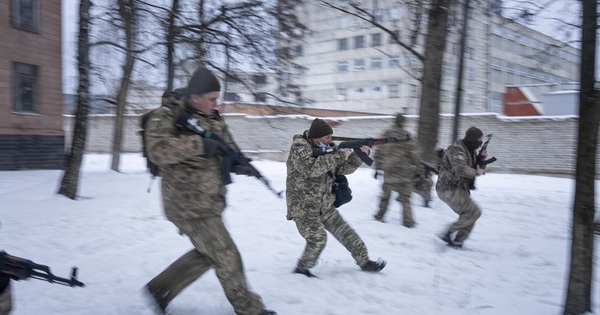When illness becomes “strange”
Unusual outbreaks of diseases such as monkeypox and lassa fever are becoming more persistent and frequent, Reuters news agency quoted a warning on June 1 from the World Health Organization’s Director of Emergencies. World (WHO) Mike Ryan.
Hidden Death
If less than a month ago – when the first case was detected (May 8,), the UK Health Security Agency (UKHSA) also confirmed that monkeypox was very rare, “not easily transmitted between people”. to humans and the overall risk to the community is very low”, on June 1, UKHSA acknowledged the disease was spreading in the community.
Lassa fever is a disease transmitted mainly by contact with infected food or animals, circulating in West Africa for many years but only sporadically. In 2021, 8 cases, including 7 deaths in Guinea, have been considered an outbreak. But in 2022, according to the most recent statement from Nigeria’s Minister of Health Olorunnimbe Mamora quoted by the Daily Post, from the beginning of the year to mid-April alone, the disease claimed the lives of 132 Nigerians out of 3,700 infections. and suspected infection.
Climate change – largely caused by human industrial activity – wreaks havoc on life in many ways, including health. According to Dr Ryan, climate change is contributing to rapidly changing weather conditions, animal and human behaviour, making diseases that normally end up in animals more easily spread to humans and become more dangerous. dangerous when accidentally added to other disease-amplifying factors from community behavior.

Africa is home to both climate catastrophe and health inequality. In the photo: A child at the Kaxareey refugee camp for people fleeing a severe drought in Dollow, Gedo region – Somalia on May 24 Photo: REUTERS
The US Centers for Disease Control and Prevention (CDC) explains: Short and less cold winters and warmer weather all year round help mosquitoes and ticks – preferred intermediate hosts for many pathogens – easier reproduction and habitat expansion. Statistics from 2004 to 2018 show that the number of diseases transmitted by mosquitoes, ticks and fleas more than doubled in the US. Climate change also forces many animals to find new habitats, carrying pathogens; as well as destroy clean water sources. Elevated temperatures promote the growth of fungi, including those that cause deadly infections. According to WHO, at current rates, between 2030 and 2050, climate change will cause about 250,000 deaths each year from malnutrition, malaria, diarrhea and heat stress. The cost of direct damage to health is up to 2-4 billion USD / year in 2020.
Equality problem
“Climate change has been affecting health in many ways, including leading to death and morbidity from increasingly frequent extreme weather events such as heat waves, hurricanes, floods…; disrupting food systems, increasing infectious diseases from animals and food and drinking water; increasing mental health problems Moreover, climate change weakens many social determinants of good health such as livelihoods, equality, access and access to health care and social protection structures” – WHO analysis.
Last week, as Western countries accelerated their search for a vaccine, boosting scientific research ahead of an unusual outbreak of monkeypox, a professor of poverty-related infectious diseases at the University of Oxford (UK), Mr. Peiro Olliaro, commented: “It’s disappointing that the world is only hit by a disease when it hits high-income countries. To prepare for a pandemic, you have to do it where it is. there is an epidemic”.
According to the AP news agency, many other doctors also acknowledge the “ugly fact” that resources to slow the spread of monkeypox have long been available, just not to Africans, who have deal with it for decades. This year, Africa reported three times as many cases of monkeypox as the more than 550 reported by four continents outside the endemic area. Congo alone has had nearly as many cases as the other four continents combined: 465 cases, with nine deaths.
“We must have a global response to monkeypox to avoid it becoming endemic in many countries. It is critically important now to prevent any recurrence of unequal access. for the Covid-19 vaccine that African countries have experienced during the pandemic” – Medical Xpress quoted Dr Matshidiso Moeti, WHO Africa Director. Doctors in Africa say that as the West is racing to prepare resources for vaccines and medicines, Africans should get it too. Dr. Ifedayo Adetifa, head of the CDC Nigeria, emphasized: “We are in a globally connected world. No one is safe until everyone is safe.”
Urgent call
The COVAX vaccine alliance just had to repeat its urgent call for action on vaccine equity on May 20, posted on the WHO website: “Inequality between lower and high-income countries are continuing to cost lives and prolong the pandemic (Covid-19), by increasing the threat as new, potentially more dangerous variants emerge.”
Only 16% of people in low-income countries have received a single dose of the Covid-19 vaccine, compared with 80% in high-income countries. “In low-income countries, many of the people most at risk in society – healthcare workers, the elderly, the elderly – are left unprotected while young, healthy adults receive booster doses in rich countries” – emphasized COVAX.
at Blogtuan.info – Source: nld.com.vn – Read the original article here



